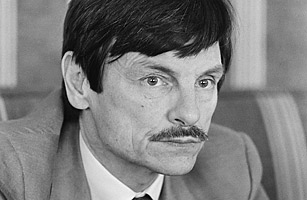
"I cannot help but ask why they persecute me so," said the internationally renowned Soviet director Andrei Tarkovsky in 1984, when he was seeking political asylum. The U.S.S.R. — whose authorities, he said, "spat on my soul" — paid no heed to his requests to remain abroad for work and, he said, had only let him make six feature-length films over the course of nearly 25 years. Those poetic films were well received, at least outside the motherland. In the Soviet Union, it wasn't necessarily easy for audiences to see them. As TIME's Richard Corliss recounted in 1986 — the year of Tarkovsky's last film and the year the director died, at just 54 — "The epic Andrei Rublev, completed in 1966, was not released in the U.S.S.R. until 1971; Solaris (1972), based on the Stanislaw Lem novel, suffered official censure; the lusciously enigmatic Mirror (1978) and Stalker (1979) sealed Tarkovsky's fate as a picturemaker on the way out." His final two movies, Nostalghia and The Sacrifice, were made in Italy and Sweden, respectively.